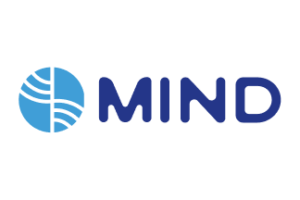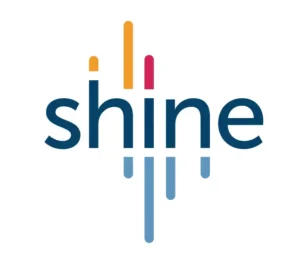University of Belgrade
FON
Scientific research projects
PROGRAMS OF THE SCIENCE FUND OF THE REPUBLIC OF SERBIA
Program Prisma
The objective of the Program is to support research projects based on excellent ideas that in the future may have a significant impact on the development of science and research, economy and/or society at large and have clearly stated motivation for research within the framework of modern trends in the development of science in the relevant scientific fields. Its objectives are also to support the development of scientific and practical aspects in the field of technical and technological sciences; the development of research of strategic importance for agriculture, food production, and environmental protection; the development of experimental, practical, and clinical research that should contribute to the health of people in Serbia; research on topics that contribute to the development in the fields of social sciences and humanities in Serbia; raising the level of science in artificial intelligence as well as its application; involving young researchers in scientific research and strengthening researchers’ professional capacities within research teams.
Population dynamics under environmental challenges in Serbia
The project titled “Population dynamics under environmental challenges in Serbia” (acronym: POPENVIROS) is led by the University of Belgrade – Faculty of Geography, with the principal investigator being Associate Professor Natalija Mirić, PhD. A member of the project team from the University of Belgrade – Faculty of Organizational Sciences is Associate Professor Milica Maričić, PhD. This project represents the first research in Serbia attempting to explain how and through which mechanisms environmental challenges impact three components of population dynamics – natality, mortality, and migration. The goal is to create population projections that take into account the influence of ecological changes based on these findings. The innovative methodology involves the use and combination of demographic, socio-economic, and ecological data from various sources at the individual, regional, and national levels. To explore causal relationships between population dynamics and environmental indicators, Structural Equation Modeling (SEM) will be employed. The application of this method will also enable the examination of the direct and indirect effects of environmental challenges on population dynamics. The results will help identify sensitive areas and demographic groups and, in the long term, formulate specific public policies that consider the impact of ecological factors.
The project implementation period is from 2023 to 2025.
Digital Platform for Advancing Knowledge and Innovation in Urban Morphology Approach for Environmentally-Sensitive Development in Serbia
The lead scientific research organization (SRO) of the project titled “Future Heritage of Spa Settlements: Digital Platform for Advancing Knowledge and Innovation in Urban Morphology Approach for Environmentally-Sensitive Development in Serbia” (acronym: SPATTERN) is the University of Belgrade – Faculty of Architecture, with the principal investigator being Prof. Vladan Đokić, PhD. The leader of the project team from the University of Belgrade – Faculty of Organizational Sciences is Prof. Dejan Simić, PhD. SPATTERN is an innovative and creative research that identifies environmentally sensitive urban patterns of spa settlements in Serbia. It promotes new and sustainable knowledge within a digitally developed research infrastructure by critically examining the challenges of sustainable land use. SPATTERN will provide a flexible methodological framework for identifying local patterns through digital tools that will be applicable on various scales and adaptable to different regional, national, and local contexts. SPATTERN brings together researchers from four scientific fields – urban planning and development, sociology, architecture, and information technologies – fostering a multidisciplinary research culture. The expected contribution of the SPATTERN project lies in the development of a digital platform and the Atlas of environmentally sensitive urban patterns based on 12 development models of spa settlements in Serbia and 26 replicators. Overall, SPATTERN will contribute with systematically and operationally organized research data that will provide insights into the morphogenesis of spa settlements in Serbia, encouraging new research and practical application of environmentally sensitive urban development from the perspective of urban morphology within the European research space.
The project implementation period is from 2023 to 2025.
Green Program of Cooperation between Science and Industry
The Program supports applied research in all fields of science that will result in patents, patent applications, technical solutions, and copyright-protected works, which are related to the given topics of the Program and include the design and development of socially impactful technologies, products, and services. A total of 20 projects from the Green Program of Cooperation between Science and Industry are being financed
Renewal of the Waste Oxygen-Evolving anodes from Hydrometallurgy and their improved Activity for Hydrogen Economy, Wastewater and Soil Remediation – Oxy RePair
The project “Renewal of the Waste Oxygen-Evolving anodes from Hydrometallurgy and their improved Activity for Hydrogen Economy, Wastewater and Soil Remediation – Oxy RePair” aims to develop a process for the repair of worn titanium anodes. The lead SRO in this project is the Institute of Chemistry, Technology and Metallurgy, while the University of Belgrade – Faculty of Organizational Sciences, the State University of Novi Pazar, the University of Priština – Faculty of Technical Sciences as well as the Innovation Center of the Faculty of Technology and Metallurgy in Belgrade, are partner SROs.
The project implementation period is from 2023 to 2025.
Program IDEAS
The Program IDEAS is the largest program of the Science Fund of the Republic of Serbia. It aims to financially support research projects based on outstanding ideas that can make a significant impact on the development of science and research, economy and/or society as a whole in the future, and also to include exceptional researchers in scientific and research work, strengthen professional capacities of researchers and create new project teams. A total of 9,096 researchers applied within 917 project proposals to participate in the projects of the Program IDEAS. Out of these, 105 projects were approved for funding.
Monitoring and Indexing Peace in the Western Balkans - MIND

The project “Monitoring and Indexing Peace in the Western Balkans – MIND” aims to make a strong contribution to the consolidation of peace and security in the Western Balkans through innovative, contextually sensitive, and methodologically mixed research, offering advice on policies based on empirical findings and improving research-based higher education in Serbia. The lead SRO of the project is the University of Belgrade – Faculty of Political Sciences, whereas the University of Belgrade – Faculty of Organizational Sciences, as well as the Union University – Faculty of Law, are partner SROs in the project.
The project implementation period is from 2022 to 2024.
Setting foundation for caPAcity buildiNg of shAring Community in SErbiA – PANACEA

The project “Setting foundation for caPAcity buildiNg of shAring Community in SErbiA – PANACEA” started with its implementation on 10 January 2022, and in a three-year period the University of Belgrade – Faculty of Organizational Sciences, as the lead SRO, together with the University of Belgrade – Faculty of Transport and Traffic Engineering and the University of Belgrade – Faculty of Economics and Business will conduct research with a focus on the sharing economy and the establishment of the capacities for its development in Serbia. The sharing economy refers to digitally coordinated economic activities through which consumers gain temporary access to products and services.
The project implementation period is from 2022 to 2024.
Engagement in Academic Achievements and Extracurricular Activities as Predictors of Life Satisfaction among High-school and University Students – SHINE

The project “Engagement in Academic Achievements and Extracurricular Activities as Predictors of Life Satisfaction among High-school and University Students – SHINE” seeks to analyze life satisfaction as a measurable value in national sustainable development in order to provide a more efficient model for improving the lives of young people aged 18 to 28 in Serbia. The project aims to determine whether engagement in curricular and extracurricular activities of high school and university students can predict the achieved level of life satisfaction and whether life satisfaction can further contribute to academic and professional development. The University of Belgrade – Faculty of Organizational Sciences is the lead SRO in this project, whereas the partner SROs are the Institute of Economic Sciences and The University of Belgrade – Faculty of Law.
The project implementation period is from 2022 to 2024.
Program for Development of Projects in the Field of Artificial Intelligence
The aims of the program for the development of projects in the field of artificial intelligence are to enhance the excellence and relevance of scientific research in the domain of artificial intelligence in the Republic of Serbia, as well as to support the implementation of the scientific results from the same domain in the economic development of the Republic of Serbia. The Science Fund of the Republic of Serbia finances 12 projects within this program
Artificial Intelligence for Managing Workplace Safety – AI4WorkplaceSafety

The project “Artificial Intelligence for Managing Workplace Safety – AI4WorkplaceSafety” was implemented in the period from 31 August 2020 to 30 November 2022. The aim of the project was to automate the detection and monitoring of previous injuries at work using artificial intelligence algorithms. The focus of this project was the work task of transporting cargo using a hand trolley, which was chosen as representative as it often leads to worker injuries and is present in all industrial sectors. In addition to the manufacturing sector (which employs the majority of workers in Serbia), the project results can also be applied in various other fields, such as ergonomics, sports, healthcare, and more. The lead SRO of the project is the University of Kragujevac – Faculty of Engineering, whereas partner SROs are the University of Belgrade – Faculty of Organizational Sciences, and the University of Belgrade – Faculty of Medicine.
The project implementation period is from 2020 to 2022.
